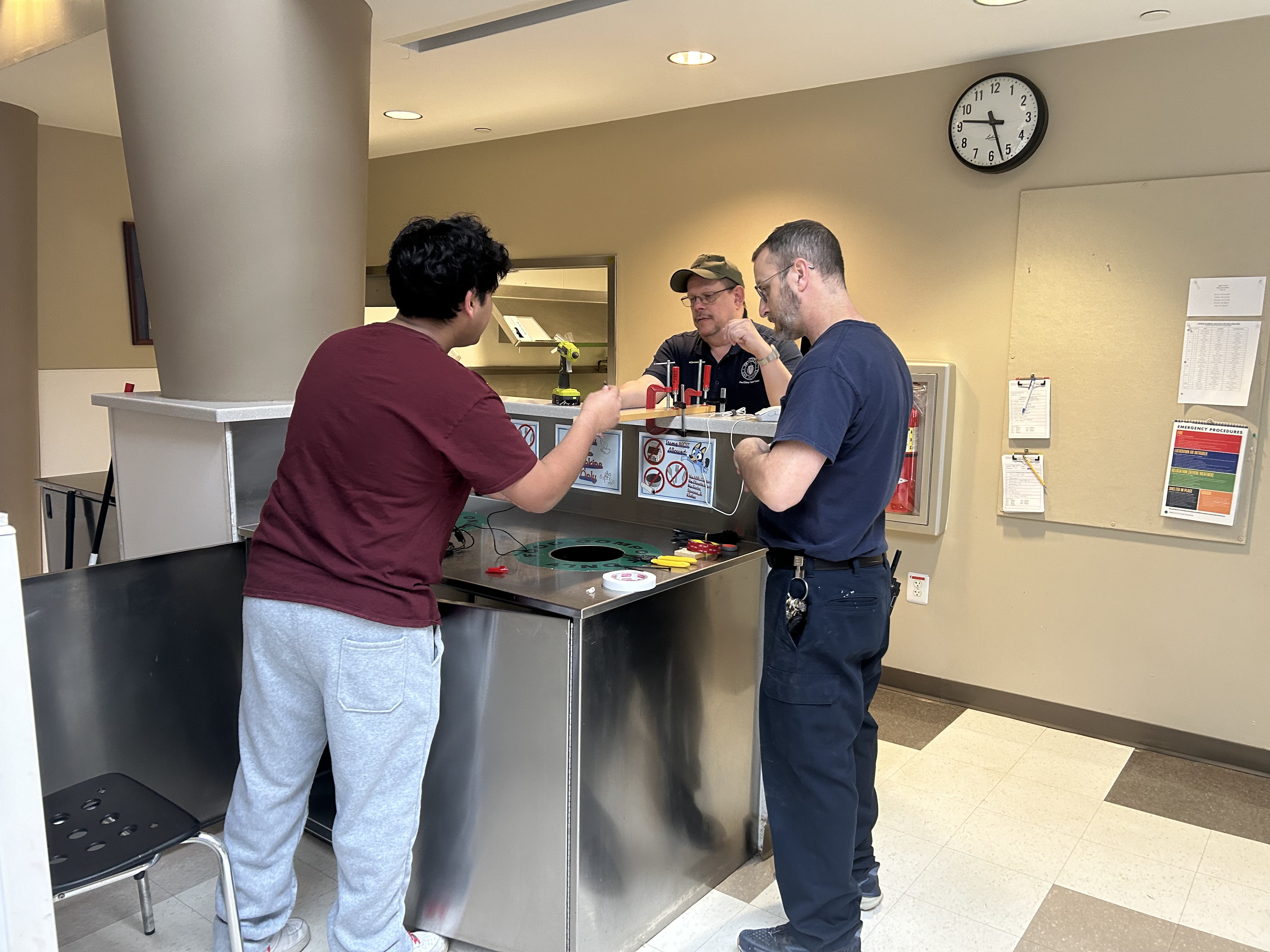Research & Recognition
Awards & Recognition
- Crest Award Gold
- Special Award for Psychology
- Third Place Prize at the Mercer Science and Engineering Fair for Recompose: Cognitive Composting

Real-Time Group Behavior Shaping for Sustainable Food Management
Every day, millions of pounds of food are thrown away, contributing to massive environmental and economic costs. 30-40% of all food intake in America is thrown out or wasted, while food waste across the globe contributes to 8-11% of greenhouse gas emissions.
At Princeton Day School in New Jersey, an average of 157 pounds of food is wasted every week. Across the U.S., the average student discards 67 pounds yearly, translating to 18,000 to 33,000 pounds of waste per school each year.
Food Waste in America
Global GHG Emissions
Weekly Waste at PDS
How accurately can CV-based depth-sensor models predict food waste weight compared to traditional density-based assumptions?
How does displaying real-time Carbon Dioxide, Methane, water, and energy loss metrics influence students' food waste behavior?
How do various psychological strategies influence food waste reduction, and does layering multiple strategies produce additive effects?

The project utilizes a depth camera to capture RGB-D photos, which are processed to identify food waste. The workflow is as follows:
This methodology allows for real-time feedback and accurate measurement of food waste, contributing to sustainable food management.
Real-time tracking of CO₂ and methane emissions
Monitoring water usage equivalent to food waste
Tracking energy loss from food waste
Food waste makes up 30-40% of the U.S. food supply and contributes to 10% of global emissions.
Food waste is expected to reach 2.1 billion tons by 2030, leading to rising temperatures, extreme weather, and biodiversity loss.
Food waste reduction: 36.9% per day (55 lbs decrease).
Estimated impact at Princeton Day School: 9,900 lbs of food wasted annually.
This system demonstrated measurable, statistically significant impact on food waste reduction.
Future plans include implementing the device in more schools and expanding its capabilities.
This section explores the psychological strategies used to influence food waste behavior.
These strategies are designed to create a positive impact on food waste reduction by engaging students in a meaningful way.
This interface provides a detailed breakdown of the environmental impact of waste.
You wasted 0 pounds of food.
You produced 0 kg of CO₂ and 0 kg of methane emissions.
Your waste destroyed 0 trees and contributed to the destruction of 0 habitats.
Wasted 0 gallons of water and cost 0 hours of energy.
Help us waste less than 50 pounds as a school by wasting 0 pounds less.